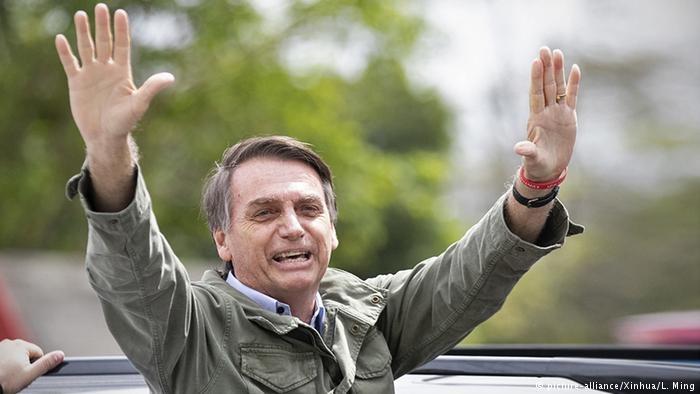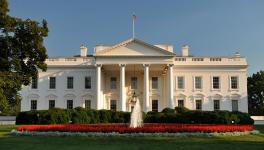Braxit: Will Bolsonaro Pull Brazil Out of BRICS?

In 2019, Brazil is slated to host the 11th BRICS summit. Formed in 2009, the BRICS bloc has moved forward to build a set of institutions to enhance trade between these countries that are outside the old core of Europe, North America and Japan. That old core is consolidated around the Organisation for Economic Cooperation and Development (OECD), formed in 1961. There is no antagonism in terms of the broad policy orientation of the BRICS and the OECD. Both groupings of countries want to deepen capitalist relations and international trade. Neither is interested in an alternative to neo-liberal capitalism.
But the BRICS emerged essentially to allow the elites of Brazil, Russia, India, China and South Africa – the so-called emerging economies – a platform to assert themselves against the elites of the 36 countries in the OECD (most of Europe and North America, Japan and South Korea, and the old settler colonies of Australia, Israel and New Zealand). BRICS was the institution of the arrivistes, those who had come onto the world stage to claim a seat at the table.
West vs. South.
With the election of Jair Bolsonaro to the presidency of Brazil, eyebrows have been raised from Beijing to Pretoria about the future of the BRICS. Already, Bolsonaro’s predecessor – Michel Temer - had said openly that he would like Brazil to become a member of the OECD – which would mean that it would turn its back on the BRICS. Crisis in the middle-income countries – Argentina, Brazil, Turkey – partly as a result of lower commodity prices and partly as the US Federal Reserve raised interest rates pushed the governments of the far-right and the right in these countries to seek a better equation with the United States.
Also Watch: Bolsonaro, Rajapaksa and the Age of the Right-wing Strongmen
Temer wanted to move Brazil back into the ‘West’ rather than remain in the ‘South’. Other South American states, such as Argentina and Colombia, also sought better relations with Washington as part of this transformation. Multilateral and multi-polar experiments – such as the Bolivarian Alliance for the Peoples of Our America (ALBA) and BRICS – have slipped by the wayside.
West vs. China.
Bolsonaro, more than Temer, comes from a far-right position that would like Brazil not only to return to the West, but to also return to be a bulwark of Judeo-Christendom against Communism. This is the worldview of Brazil’s military dictatorship (1964-1985).
Bolsonaro is not against internationalism. This is not an inward turn, a move to protectionism. He is quite happy to invite foreign business into the country as long as these businesses are from the OECD countries and not from China. Here, Bolsonaro mimics Trump.
China is Brazil’s largest trading partner and has been so since 2009. Export of soy to China is as crucial as the arrival of Chinese investment into Brazil. As the US tightens its sanctions against China, an opportunity has opened up for Brazilian soy exports (despite the environmental stresses this produces in Brazil).
Bolsonaro is not concerned. He is driven more by ideology than by pragmatism. Earlier this year, Bolsonaro visited Taiwan as part of an East Asian trip that included South Korea and Japan. After the election, Taiwan hastily congratulated Bolsonaro. China has said it is unhappy with this Bolsonaro-Taiwan dance; Chinese authorities have cautioned the Brazilians about having deeper ties with Taiwan. It is Bolsonaro’s anti-Communism that drives his antipathy to China. Not his concern for Brazilian sovereignty.
Bolsonaro’s Zionism
The idea of Brazil as part of a Judeo-Christian civilisation is fundamental to Bolsonaro’s worldview. He is the candidate of the conservative Christians – including the Pentecostals – many of whom share an attachment to Israel. That is why Israel’s Benjamin Netanyahu quickly offered his congratulations to Bolsonaro for his victory. Israel has long cultivated this strand of conservative Christianity in Brazil, hoping to change the orientation of Brazilian foreign policy when it comes to West Asia. The Workers’ Party governments of Lula and Dilma held fast as defenders of Palestinian self-determination.
Now, with the victory of Bolsonaro, the official Brazilian position vis-à-vis Israel might very well change. Just as India saw Tel Aviv as a stepping stone on the road to Washington in 1992-93, Brazil might have to go through Tel Aviv to cement its ties with the United States.
About Braxit
There is no immediate call for Braxit, Brazil’s exit from the BRICS bloc. It will take some time for Bolsonaro to get used to the presidency and it will not be easy to overwhelm the sophisticated Brazilian foreign ministry, known as the Itamaraty – its headquarters. Diplomats at the Itamaraty say that Brazil cannot afford to turn its back on its BRICS allies nor on the G4 at the UN (Brazil, Germany, Japan and India) which is a bloc supporting each other for a permanent seat at the UN Security Council. There are business interests that have benefitted from the BRICS grouping and there are political interests keen on a permanent seat in the UN Security Council. These are going to be the barriers that Bolsonaro will have to scale. Braxit, then, cannot happen precipitously.
More ominously, Brazil under Bolsonaro will certainly deepen its ties to the United States and to the US agenda for South America. This means that Brazil will take more action in the Lima Group that seeks to overthrow the government in Venezuela. There will certainly be more a presence of US armed forces in Brazil, which will be no comfort to the government in Caracas – already in the gunsights of the US and of the South American oligarchy. There might not be a war in the conventional sense. But Brazil under Bolsonaro – in the BRICS or Braxit – will certainly be a front in the hybrid war against Venezuela and Bolivia.
Get the latest reports & analysis with people's perspective on Protests, movements & deep analytical videos, discussions of the current affairs in your Telegram app. Subscribe to NewsClick's Telegram channel & get Real-Time updates on stories, as they get published on our website.
























